We all want to attract more bees into our gardens. We’re all aware of the importance of bees. But sometimes, a plant you may find visually appealing doesn’t provide any benefits to bees, such as begonias. So, are bees attracted to honeysuckle or not?
Yes, bees are attracted to honeysuckle. Ultimately, bees are attracted to any plant that is a reliable source of nectar. Honeysuckle is loaded with nectar.
Of course, there are some hybrid versions of honeysuckle that bees ignore. These hybrids have often been developed solely for their visual appeal to humans.
Unfortunately, at one point in time, the visual looks of a plant were put at the top of the list when it came to cultivating plants and not the wider environment.
If you’re not sure about which honeysuckle to buy, head to your local garden centre, find the honeysuckle section and then stand and watch to see which plant gets visited by bees. You’ll begin to see a pattern of which honeysuckle bees continue to visit. This is the honeysuckle you should go on to buy.
Want to Attract Bees to Your Garden?
We’ve Put Together a Complete Guide to Attracting Bees to Your Garden Including Our Top 14 Plants You NEED to Have in Your Garden:
Which Honeysuckle is Best for Bees?
Fortunately, most varieties of honeysuckle will attract bees to your garden thanks to their ample supply of nectar as well as their strong scent. Here are a few you may want to try and grow if you want more bees in the garden:
- Trumpet Honeysuckle – As the name suggests, trumpet honeysuckle has long, tubular flowers and the plant can grow to a whopping 10 feet tall.
- Japanese Honeysuckle – Japanese honeysuckle is loved by both bees and butterflies. It can grow to 20 feet tall so make sure you give it ample room to grow. The white flowers are particularly fragrant. It tends to be more popular with butterflies and moths but it will still attract bees.
- Fragrant Honeysuckle – Bees rely on scents to find sources of nectar. As the name suggests, fragrant honeysuckle is exactly that – fragrant. It will only grow to 4 or 5 feet in height making it perfect for smaller gardens.
Whether it’s a bush or climbing variety, honeysuckle will provide for bees. If you have space in your garden, then get one planted up.
If you are limited on space or want to keep it contained then there are even some varieties of honeysuckle that can be grown in containers or pots providing that you keep them well watered.
Honeysuckle will flower from June through to September which means you get a decent show of blooms for a fairly decent period. The only drawback to this is that there are a lot of blooms at this time of the year which means nectar is fairly accessible.
If you really want to do all you can to help bees then you want to also include a lot of plants that bloom early and late in the year such as heather.
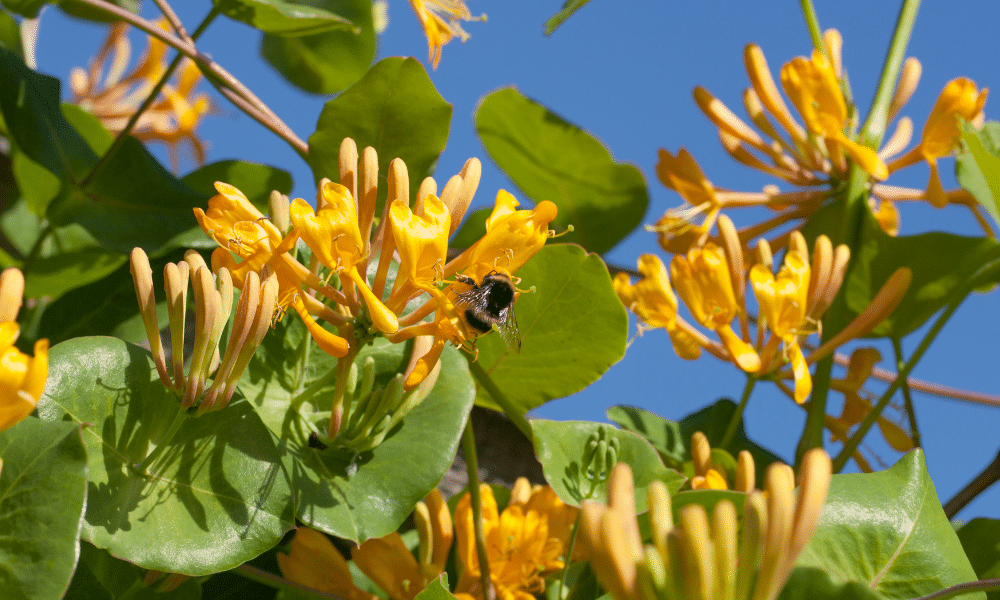
Why Do Bees Like Honeysuckle?
If there’s one thing we all know about bees it’s that bees need nectar. It’s the reason they visit any flower. If a flower is loaded with easy-to-access nectar then a bee will visit. Honeysuckle provides exactly that. It is an excellent source of nectar.
Remember that a bee will need to visit roughly 2 million flowers to make just 1 pound of honey. Honeysuckle covered in flower heads can be a reliable, consistent source of nectar.
Of course, the other benefit is that during this collection of nectar, bees will pollinate honeysuckle – it’s why bees are so important after all. They will spread pollen from the stamen to the pistil which enables the plant to produce fruit.
When bees visit flowers, they spread pollen from the stamen (male part of the plant) to the pistil (female part of the plant). This process allows plants to reproduce and create fruit.
Does Honeysuckle Attract Other Pollinators?
Fortunately, honeysuckles aren’t just beneficial to bees but will also attract other pollinators to your garden. Butterflies and moths are both attracted to the strong scent.
Moths, as you well know, come out at night and rely on strongly-scented plants. Honeysuckle is a plant that continues to smell throughout the dark of night making it highly attractive to moths.
Although not pollinators, honeysuckle (especially the fruits they produce later in the year) will also attract a range of birds including thrushes and songbirds.
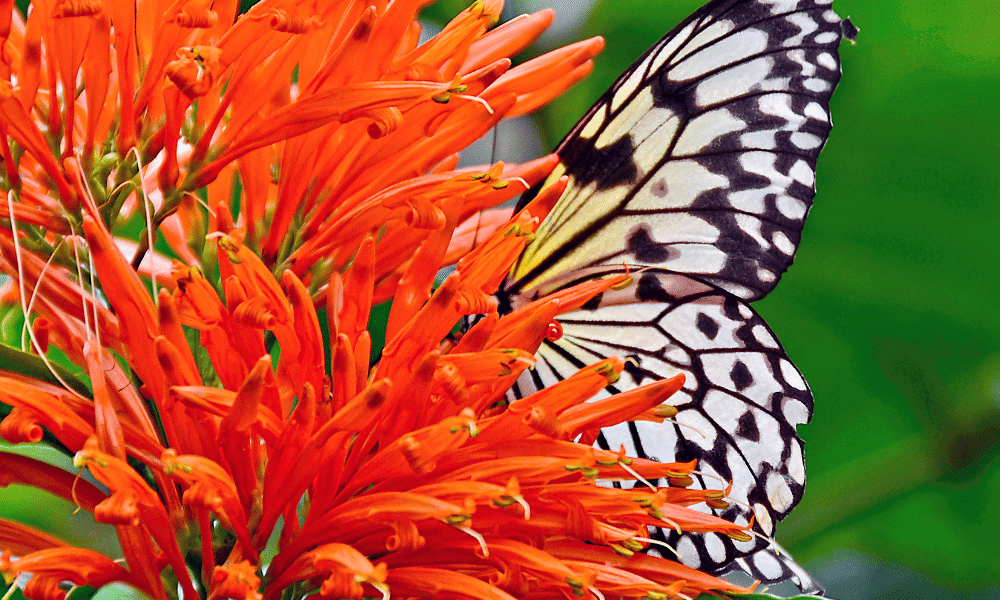
FAQs
If you still have questions about honeysuckle and its ability to draw in bees then have a look at these useful FAQs:
Yes, honey bees do like honeysuckle. Honey bees need to collect nectar which they can take back to their hive and, in turn, convert into honey. Any fragrant plant that produces a good quantity of nectar will be liked by honey bees.
Yes, bumblebees like honeysuckle. Nectar on honeysuckle is often hidden deep into the long flower heads. This is perfect for bumblebees as they have long tongues so prefer scavenging in trumpet-shaped flowers.
Unfortunately, bees with short tongues may struggle to access the nectar in honeysuckle as the flowers are tubular. This shouldn’t be a reason to avoid planting it, however.


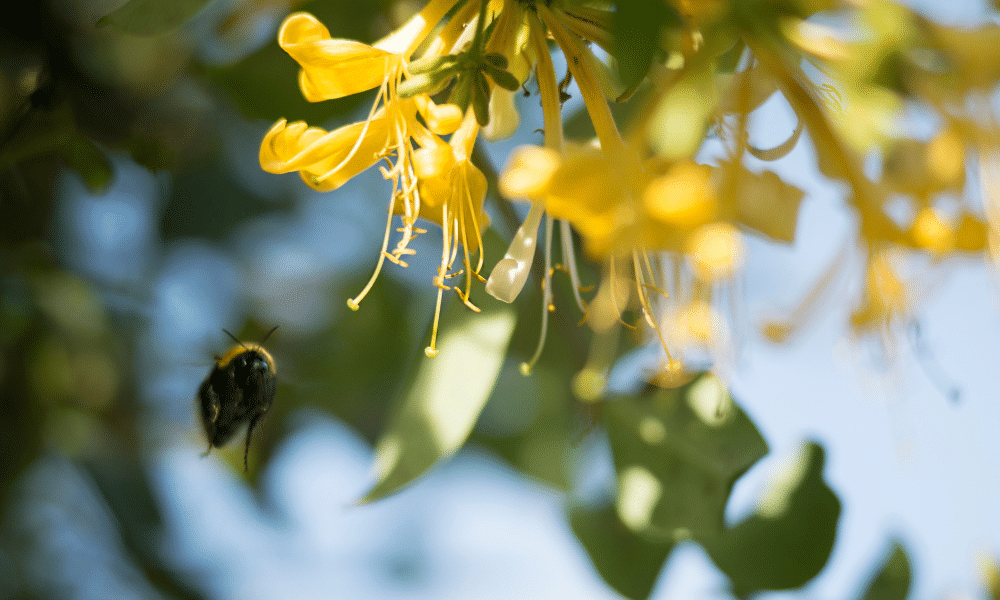
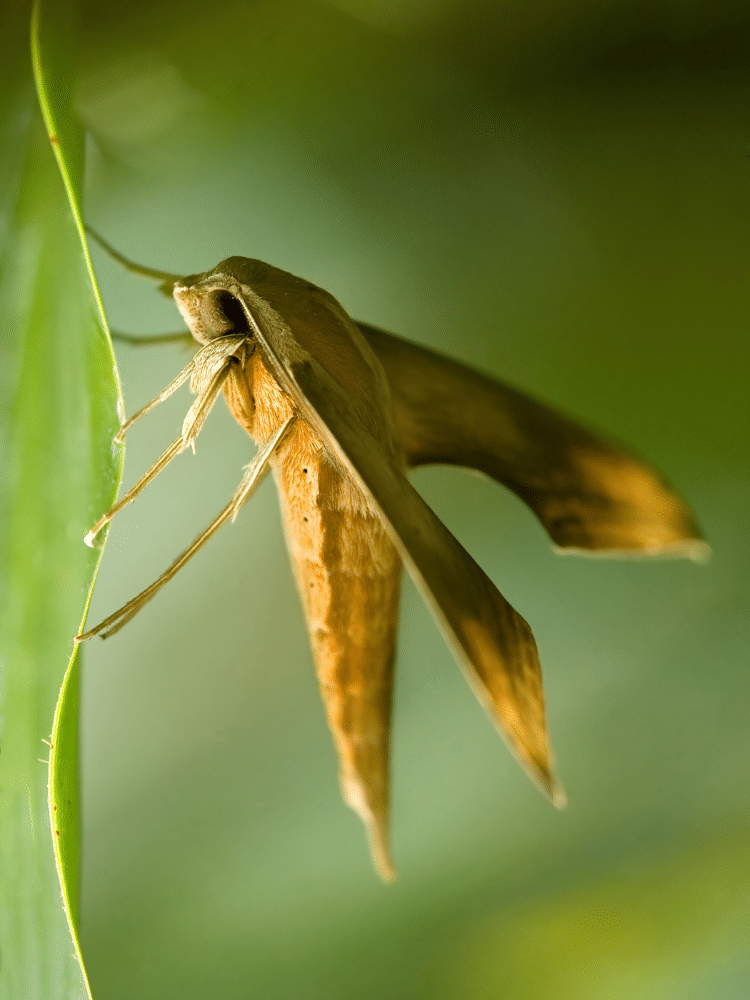
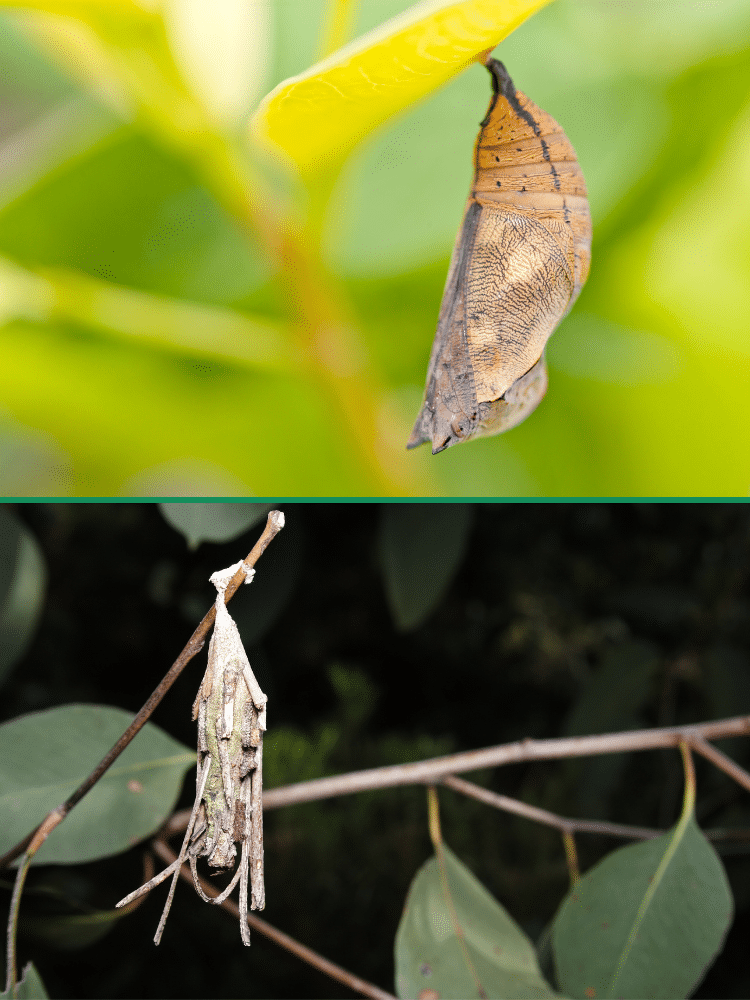
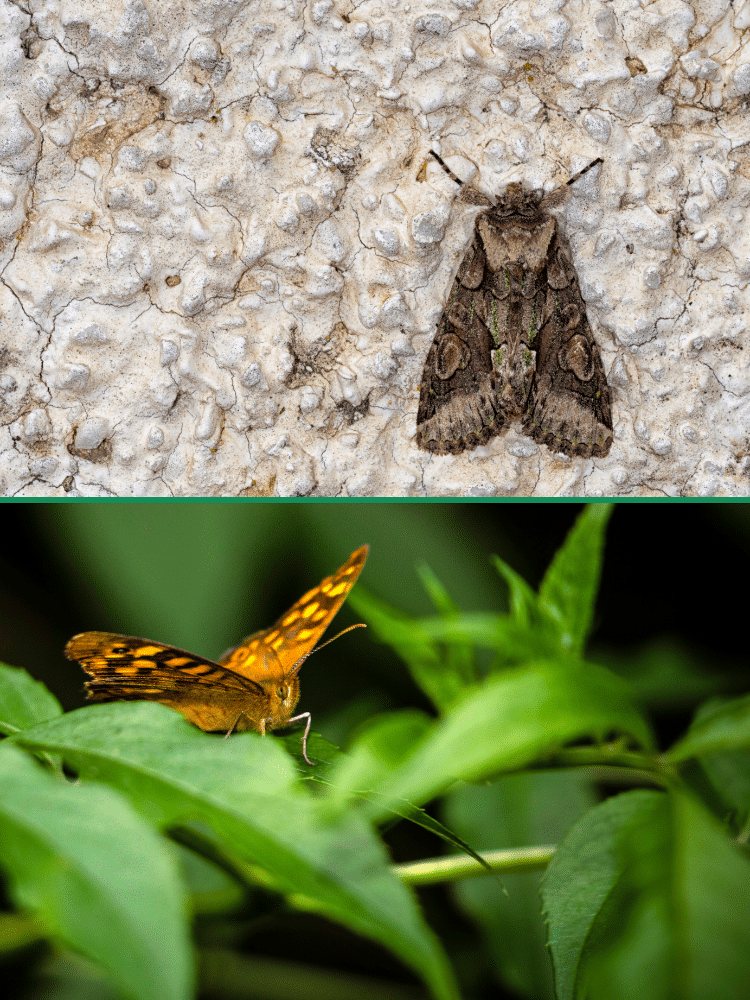
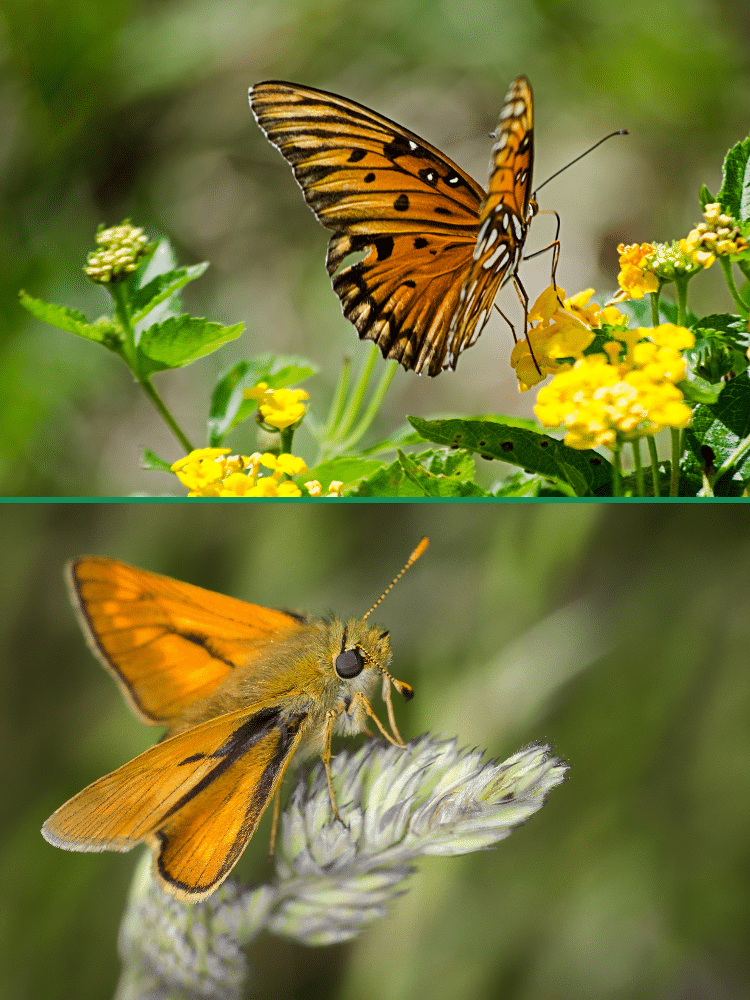
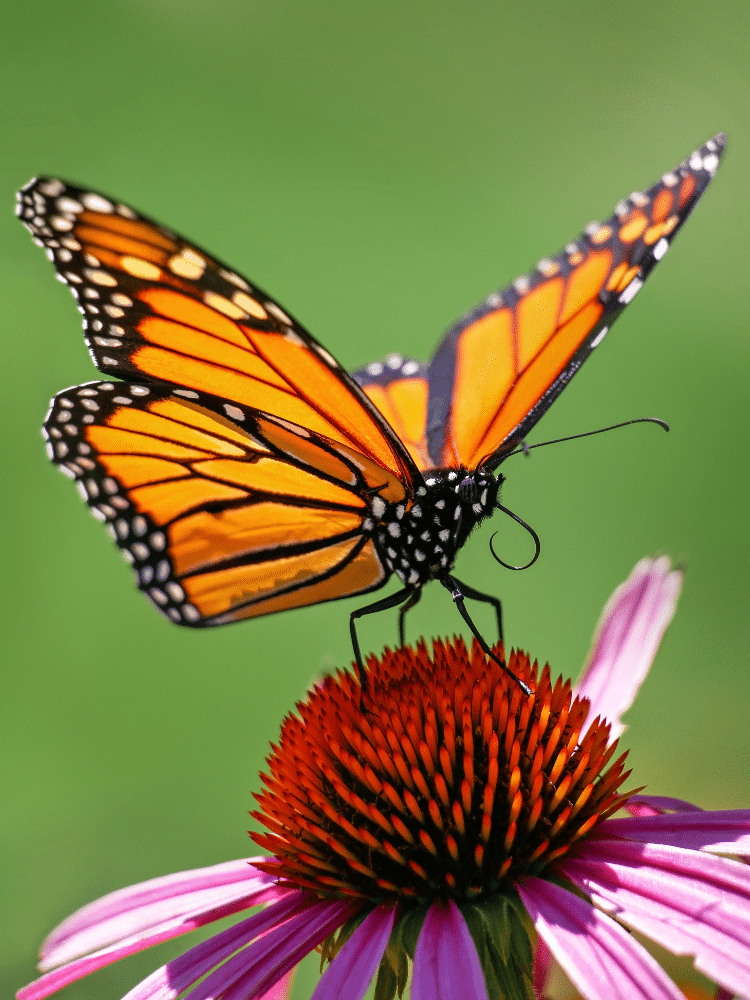
Please don’t encourage the spread of japanese honeysuckle, it spreads it’s self enough as it is being at least as invasive as kudzu in North America. It chokes out everything, including trees, and prevents forest succession.
If planting honeysuckle, please plant only native honeysuckles. They’re not as fragrant as the japanese honeysuckles, but they’re also not invasive.